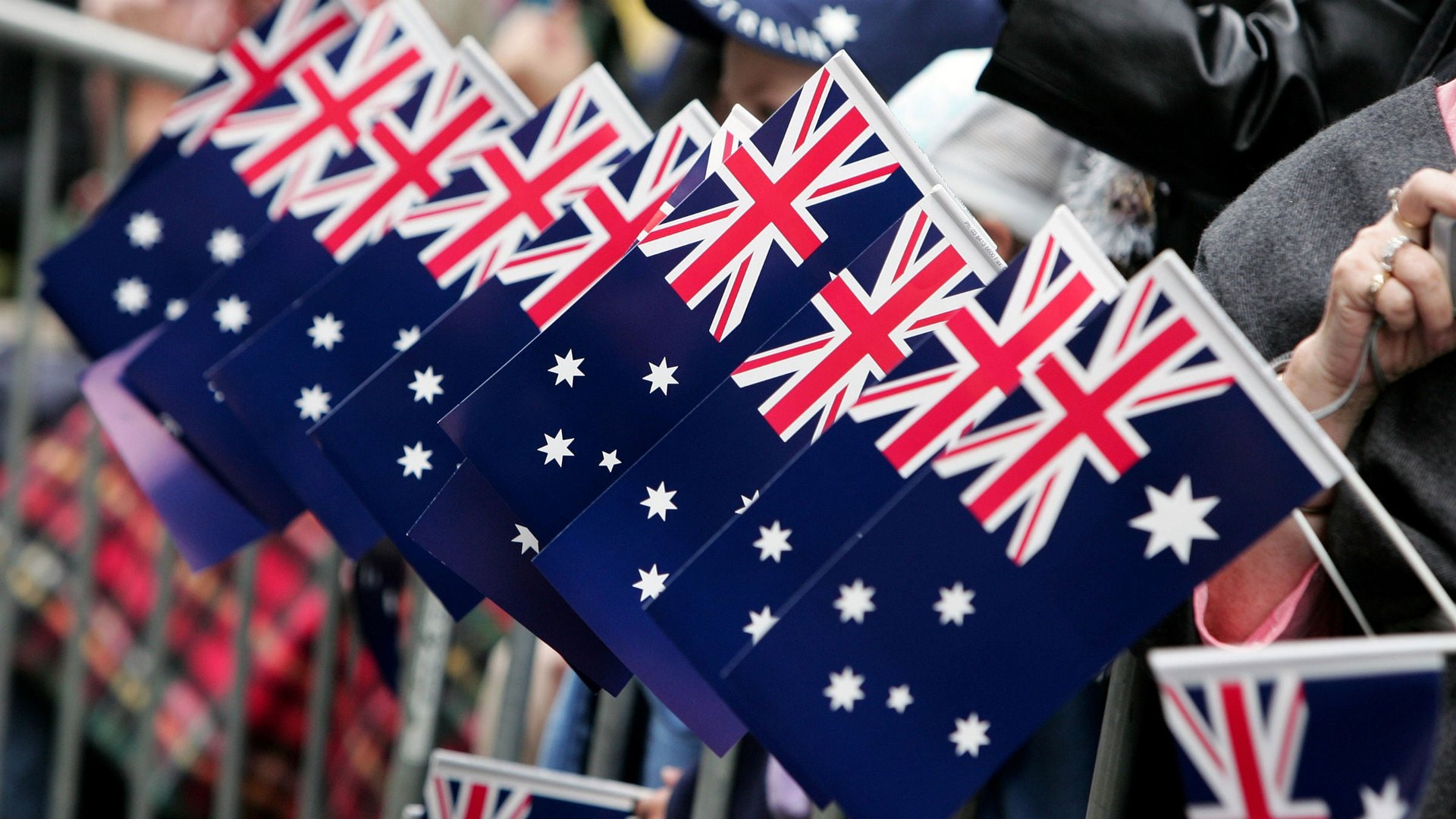Australia’s dollar pops after RBA declines to cut interest rates
Rates stayed up in the land down under.


Rates stayed up in the land down under.
The Reserve Bank of Australia decided today (Nov. 3) to keep its main interest rate at 2%, despite widespread expectations that the central bank would cut rates to cushion Australia’s sagging economy.
The country’s currency, still known as the Australian dollar as of this writing, popped after the news as currency traders took advantage of mismatched expectations.
(Typically, higher interest rates are good for a currency and lower interest rates tend to weaken currencies. So the fact that rates stayed higher-than-expected explains some of the peppiness of the Australian dollar in aftermath of the RBA announcement.)
Australia’s economy, known for being relatively recession-proof, has been having trouble sustaining satisfactory GDP growth lately. The economy grew 0.2% in the second quarter this year, a slowdown from 0.9% in the first and the worst quarterly GDP number in four years.
A key reason for those economic headwinds is a global commodity slump, including major Aussie export iron ore, which the RBA mentioned in the second paragraph of its policy statement (“Key commodity prices are much lower than a year ago, in part reflecting increased supply, including from Australia.”)
Surprisingly steady growth aside, Prime Minister Malcolm Turnbull, rose to power on promises to turn things around. From Quartz in September after his election:
The problems are so deep that Australia’s new prime minister, ex-investment banker and barrister Malcolm Turnbull, backed his whirlwind run for office on fixing them. “The big economic changes that we’re living through here (in Australia) and around the world offer enormous challenges and enormous opportunities and we need a different style of leadership,” he said at a press conference announcing his challenge to Tony Abbott, who was voted out Sept. 14.
On top of a slowing economy, Turnbull is inheriting a country with the fastest-growing net debt in the developed world, a shrinking federal budget, and an entire generation of constituents who have only known economic prosperity.
To be fair, the RBA doesn’t think it’s all that that bad.
“While GDP growth has been somewhat below longer-term averages for some time, business surveys suggest a gradual improvement in conditions over the past year,” it wrote in its policy statement.
Or, as Bank of America Merrill Lynch put it in a note to clients: “the Banks’s recent minutes were almost upbeat on the domestic economy, suggesting on this basis at least the glass may be assessed as being more half full than half empty.”